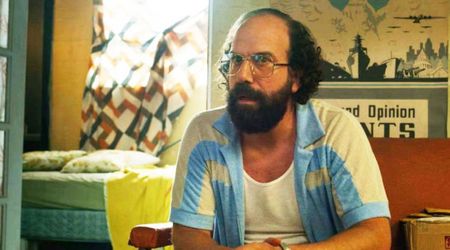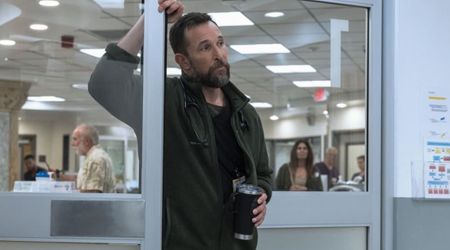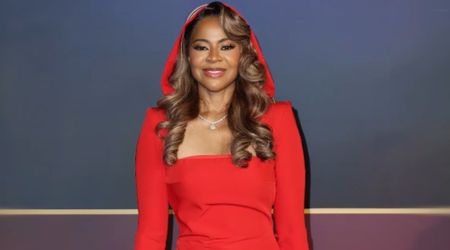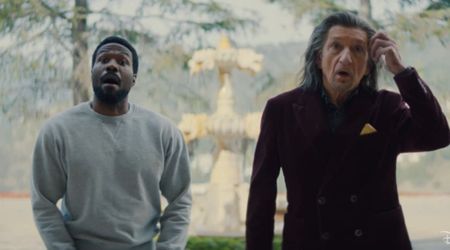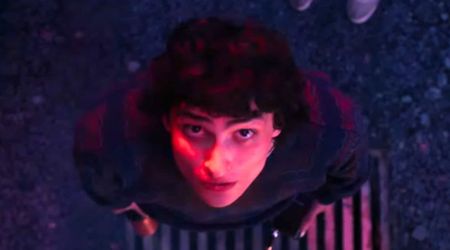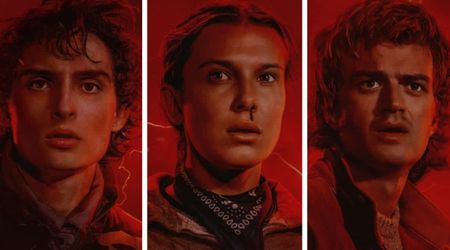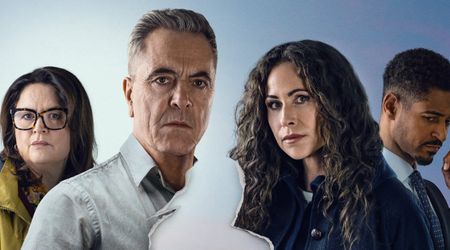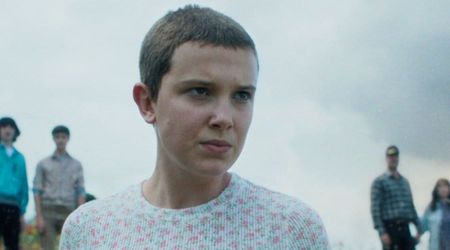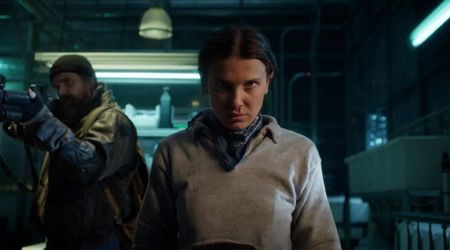EXCLUSIVE | 'A Call to Spy': Sarah Megan Thomas on the diverse women of WWII uniting 'to resist a common evil'

Gone are the days of using women as props, or tagging them along as a token sidekick in a story about grit and machismo, with their male counterparts fighting the system and doing all it takes. In Sarah Megan Thomas' new film 'A Call to Spy', the writer, producer, and actor not only gives the center stage to three iconic women from the British Intelligence during the Second World War but also projects them in all their remarkable feat without a man aiding their way through success. Names like Virginia Hall, Vera Atkins, and Noo Inayat Khan might not be at the tip of your tongue or even the back of your mind until the time is invested in a decent Google search; but perhaps that's why Thomas' film is so crucial in terms of a story that needs to be told. Learning from her mistakes and relying on powerhouse forces like Stana Katic and Radhika Apte, Thomas gets candid about her new film and its appeal to a male audience in a chat with MEA WorldWide (MEAWW).
'A Call to Spy' follows the lives of three women - Hall, Atkins, and Inayat-Khan, who were part of the British Intelligence invading the Nazi regime in the 40s. Inayat-Khan was even betrayed and captured before being executed at the Dachau concentration camp, but even in such a crowded slate of World War II stories that Hollywood has churned out, her name was lost until Thomas dug the history out. Herself playing the legendary Virginia Hall, Thomas tells us how her experiences with previous films helped her channel the triple role of writer, producer, and actor with ease.
"It is quite challenging. I'm not going to lie," Thomas tells MEAWW, before quickly adding "But I did have the benefits of learning through mistakes from the past too. As you go along, you get better at it but as a storyteller, I just feel it is so important to tell more untold stories about real female heroes and have more original content out there. So I'm motivated to produce, write, and act in these films that are inspiring for women everywhere."

Thomas's previous films have been women-centric too. Her 2016 film 'Equity' saw women busting balls in the field of finance; in 2012, 'Backwards' focused on female athletes. It's almost a four year cycle for Thomas because in 2019 dropped 'A Call to Spy' for the first time at film festivals, and became an immediate hit with the audience. While femme-focused storylines are a primary element in Thomas' work, there are a few other things factoring into why this particular story about WWII female spies. "As a filmmaker, I always start with a popular genre that audiences love and will be entertained by, but also where the female lens needs a new story," she reveals. So while I do love the James Bond movies for what they are, when there is a spy film, more often than not, it's a romance and it's not necessarily the grit and determination of these women being good at their job. When I uncovered these three women in Churchill's secret army and realized that a movie had not been made about them in the US, it was just like - this has to be done!"
And so she did - weaved a story purely breathing an air of solidarity and strength in these stellar women from three very different walks of life, coming together to do a solid job in a man's world. While Thomas notes that her male audience has loved the film so far, despite the lack of unnecessary sexualization of the central characters, she believes diversity also has a stellar role to play in the film's success. "Virginia Hall has a disability, her leg had cut off while hunting. She had a wooden leg and she was discriminated against that her whole life," Thomas tells us about her character. "Inayat-Khan was a Muslim and a pacifist, and she was discriminated against because of many reasons, including the color of her skin. Atkins was a Jewish woman and there was antisemitism, in London 1941, and she had to hide that from her own spy organization to be able to work there. So these women were thought of as outsiders and the more stories we can tell about everyone in this world, the better because we already have the other version."
Probably why Thomas assures that "Men love this film, they are fascinated by the history that they also didn't know!" She quickly also addresses how the women in her film "have won every award for bravery yet they're not in our history books. I really hope (viewers) see that you can have a thriller spy film that's entertaining without the deep romance or over-sexualization of women. The drama here is will they or won't they survive? Also, there's a timely message," Thomas reminds us. "These were three women from different countries, different religions, different backgrounds, yet they united to resist a common evil, and we do live in a global world today. We're all in this together. The message of this film is that the diversity of our women proved critical to their success. That's an asset and there's a way that we can come together as a world."

That said, what perhaps really works as an added bonus here is Thomas's deep dive into the lives of these women. "These spies didn't give interviews. They didn't talk about their spy work," Thomas points out. "So getting at the internal of them was what I had to come with and bring based on facts. As a screenwriter, you have to decide how much research to do. And also when to put the research aside, because you have to tell the story in the movie. For me, getting these women's stories was crucial because you owe it to them." Thomas indulged in deep dives into spy files in the UK archives, the CIA, and the OSS, which is the American precursor to the CIA. Friends and relatives of these iconic women were able to give her facts about what happened to them, the rest of it was all her.
Thomas relied on yoga and wine when the story got too intense. "But jokes aside, it was challenging because there's just so much sadness, but I want to focus on the inspiring message that these women can and did make a difference," Thomas reflects on her film. "They were individuals, they were quote-unquote, ordinary civilians. They became extraordinary heroes. You can always make a difference as an individual."
This very simple initiative to make a difference reflects in the world of the striking filmmaker who believes "You have to see the change that you want to see," about Hollywood's lack of recognition when it comes to women in the field. Her solution to the sinister problem? "We need more women producers and screenwriters to create these original stories, to begin with, and then bring on board more women directors to tell it through a female lens. I'm very proud of the fact that has a huge female-led crew behind the camera. Production designer, costume designer, composer, which is very rare. We all as women have to support each other and I think it is starting to happen because we've identified the problem for women and diversity in film. But we're not there yet by a long shot and we just have to not let go of that goal."
Catch the vivid and visceral portrait of Thomas' version of these power-packed female spies of WWII in 'A Call to Spy' that premiers on VoD this Friday, October 2.

